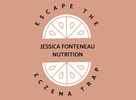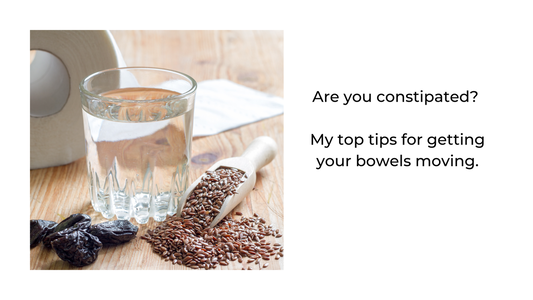ARTICLE Categories
All
|
|
If you suffer from bloating, painful, hard to pass stools or infrequent stools (e.g., not every day) you or they may be suffering from constipation.
The most important thing you can do if you think you are suffering from constipation is to consult your doctor. Once you’ve been given the all-clear, it’s time to consider some ways to get things moving naturally. This article will cover:
What is a ‘normal’ bowel transit? All foods break down at different rates, moving through the stomach to the small intestine and onto the colon at their own individual speed. Each ingredient from a meal e.g., protein, vegetables and carbohydrates will each arrive in the colon at different times. None of us is average, but research has found that – on average – digestion happens at the following rates:
One to three bowel movements per day is considered normal. If you aren’t passing a stool daily, then it may be time to introduce things that may set that right. The importance of hydration Drink more water - our stools need to be bulked out with water to pass through the gut smoothly. Drink regularly throughout the day rather than a lot in one go so that you are regularly hydrating yourself and your stools. Fibre, the magic ingredient. Whilst many nutrition facts have changed over the years the one thing that hasn't is the importance of fibre. Did you know that you should be aiming for 30g of fibre per day? The average European can barely make 15g. Soluble and insoluble fibre – what’s the difference? Insoluble fibre is considered gut-healthy fibre because it normalises peristalsis (the muscle movement that carries your food through your digestive tract and out) and adds bulk to your stool, helping prevent constipation. Insoluble fibre does not dissolve in water, which means it passes through the gastrointestinal tract relatively intact and speeds up the passage of food and waste through your gut. Insoluble fibres are mainly found in whole grains and vegetables. Soluble fibre binds with water and forms a gel, which slows down digestion and eases the passing of a stool. Soluble fibre delays the emptying of your stomach and makes you feel full, which helps control weight. Slower stomach emptying may also affect blood sugar levels and have a beneficial effect on insulin sensitivity, which may help control diabetes. Soluble fibres can also help lower LDL (“bad”) blood cholesterol by interfering with the absorption of dietary cholesterol. Soluble fibres can be found in food sources such as oats, peas, beans, apples, citrus fruits, carrots, barley, chia seeds and psyllium. How to get enough fibre An average sized orange contains 3.1g of fibre, a 100g portion of cauliflower is between 1.6g, kale has 3.1g per 100g and raspberries knock them all out of range with 6.5g, so it can be difficult to judge your intake. To make it easy you should aim to eat 7 portions of fruit and vegetables per day. I usually recommend 5 portions of vegetables and 2 portions of fruit. You should also include of nuts, seeds, whole grain breads, cereals, beans, and lentils which all contain decent amounts of fibre to boost your intake. It is important to note that fibrous foods are fantastic, but they do need water to help move them along, so go back to my first recommendation. Don’t forget to hydrate! It’s all in the movement Regular exercise and frequent movement are both vitally important to maintain a healthy lifestyle and a state of equilibrium. Without exercise our bodies become sluggish, and this reflects in the state of our gut and the length of our digestion process. Exercise can also help the mechanical part of digestion, peristalsis. The muscle waves that propel the food from your digestive system to the exit. In summary, here are my top tips for relieving symptoms of constipation: Please do not introduce all these options at once, but gradually add one change at a time and note how you feel.
Speak to your medical practitioner/nutritional therapist or pharmacist adviser for further guidance. If on medication, please speak to your GP/consultant before making any changes to your diet. Read more:
My next newsletter will feature an early bird offer for my brand new online, self-guided course ‘Unleash the Change. Discover the habits and barriers hampering your efforts’. Sign-up now to benefit. Interested in what I do and who I am? Go to my website: www.jessicafonteneaunutrition.com
0 Comments
Leave a Reply. |
AuthorI’m Jessica Fonteneau, I’m the eczema specialist and I help people Escape from the Eczema trap. Archives
April 2024
Catégories
All
|


 RSS Feed
RSS Feed